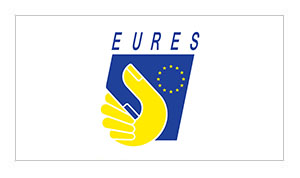During discussions on the implementation of the European directive on work-life
balance, the unions never agreed that the payment should be below the individual’s
salary. This is evident from a joint statement issued by the General Workers Union
and the UHM Voice of the Workers, in response to recent statements made by a
group of organizations in a letter to the two largest unions in the country, namely the
-GWU and the UHM Voice of the Workers.
In this letter, these organizations expressed their position on the implementation of
the Directive in Malta, which provides for measures such as vacation and sick leave
for parents and caregivers of dependents.
In his response, the General Secretary of the General Workers’ Union, Josef Bugeja,
stated that this directive has been discussed in the ERB (Employment Relations
Board) since 2020. He said that during the discussions, the unions had jointly made
a proposal calling for Malta to follow the Nordic model.
“The unions demanded that each day be fully compensated, for both parental,
caregiver and paternity leave, according to the individual’s salary,” he said. However,
at a meeting with the government earlier this year, there was still no agreement
between the employers, the government and the unions. The unions never agreed
that the payment should be less than the individual’s salary. For its part, the
government has said that this is just the beginning of something more, where it
creates a balance between work and private life for better quality, to further
strengthen the rights of workers,” he explained. -Secretary General of GWU.
UHM Voice of the Workers board president Josef Vella, while acknowledging that
this was the unions’ position in the discussions, maintained that those who really had
an interest in the issue should have been actively involved from the beginning, not
just now.
“I would expect that if there is an association that had an interest in a directive to
take the initiative from the beginning and ask to meet with the social partners
involved at the beginning of the process so that it could put forward its ideas, rather
than reacting after the decisions have already been made,” said the UHM executive
director.
Both GWU and UHM also clarified that the last meeting on this directive was held
only earlier this year. However, they assured that as unions, they still intend to
increase pay for this leave.
What the unions say…
In their letter, the six unions pledged their full support for the demand that the unions
will make to the government to consult widely and significantly improve the law. They
stressed that measures should be enacted in favour of a work-family balance that
will truly make a difference in the lives of workers and in society.
The organizations – Graffiti Movement, Malta Women’s Lobby, Malta Federation of
Organizations Persons with Disability (MFOPD), National Parents’ Society Persons
with Disability (NPSPD), Women’s Rights Foundation and -Aditus Foundation –
stated that “with the exception of the ten-day fully paid paternity leave, all other
measures are very weak. Of the four months of parental leave, only two months are
paid, and at a measly sick leave rate of 21.85 euros per day. Therefore, few working
parents will be able to afford to take this leave.”
One of the objectives of paid parental leave, he said, is to create incentives for men
so that family responsibilities are more evenly distributed between the sexes, “an
objective that will certainly not be achieved due to the very low rate at which this
leave is paid. Moreover, the fact that this leave cannot be taken all at once (it can
only be taken for one month, until the children are four years old) means that parents
will not be able to use it when they need it most.”
The unions complained about the fact that caregiver leave – which is only five days a
year for workers who care for those entrusted to their care – is not paid. They also
mentioned the right of workers to request flexible work arrangements from the
employer, as introduced by the legal notice, believing that this will have “almost no
impact” as there is no obligation to comply with these requests in certain
circumstances or conditions.







